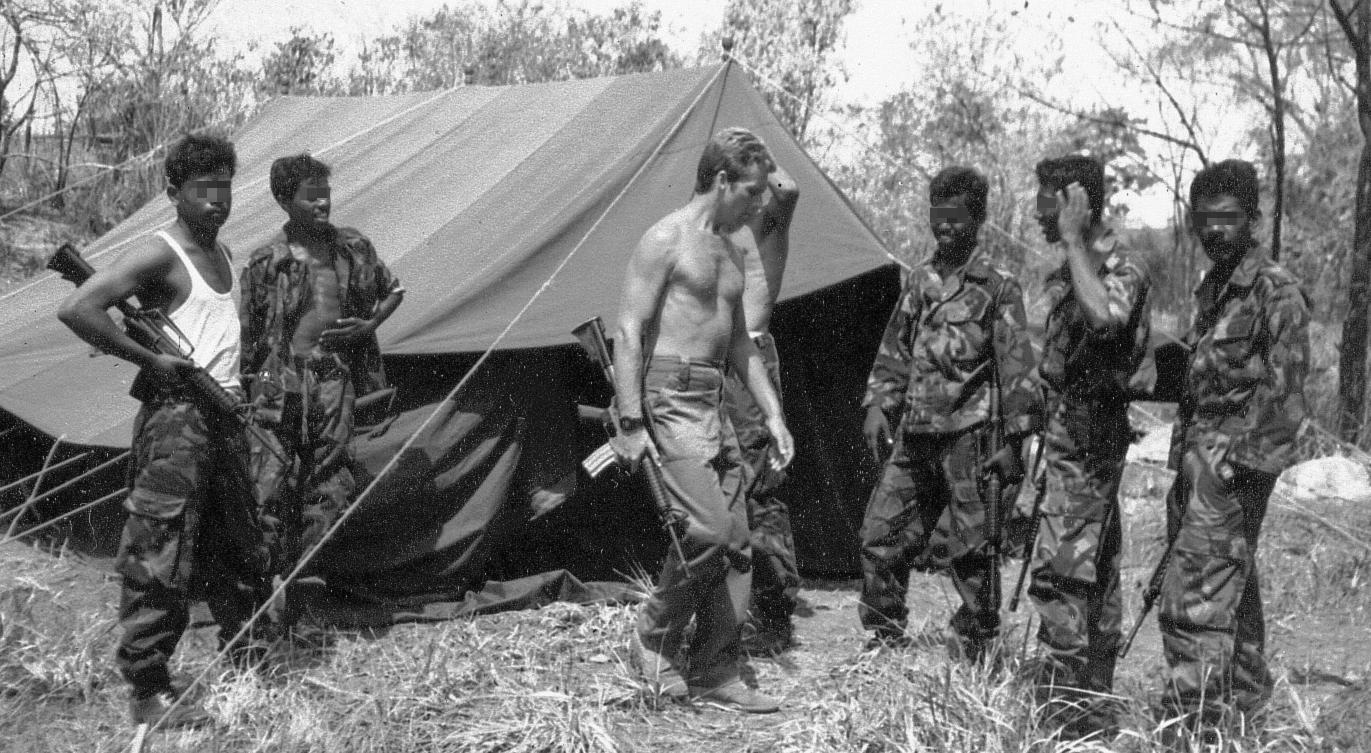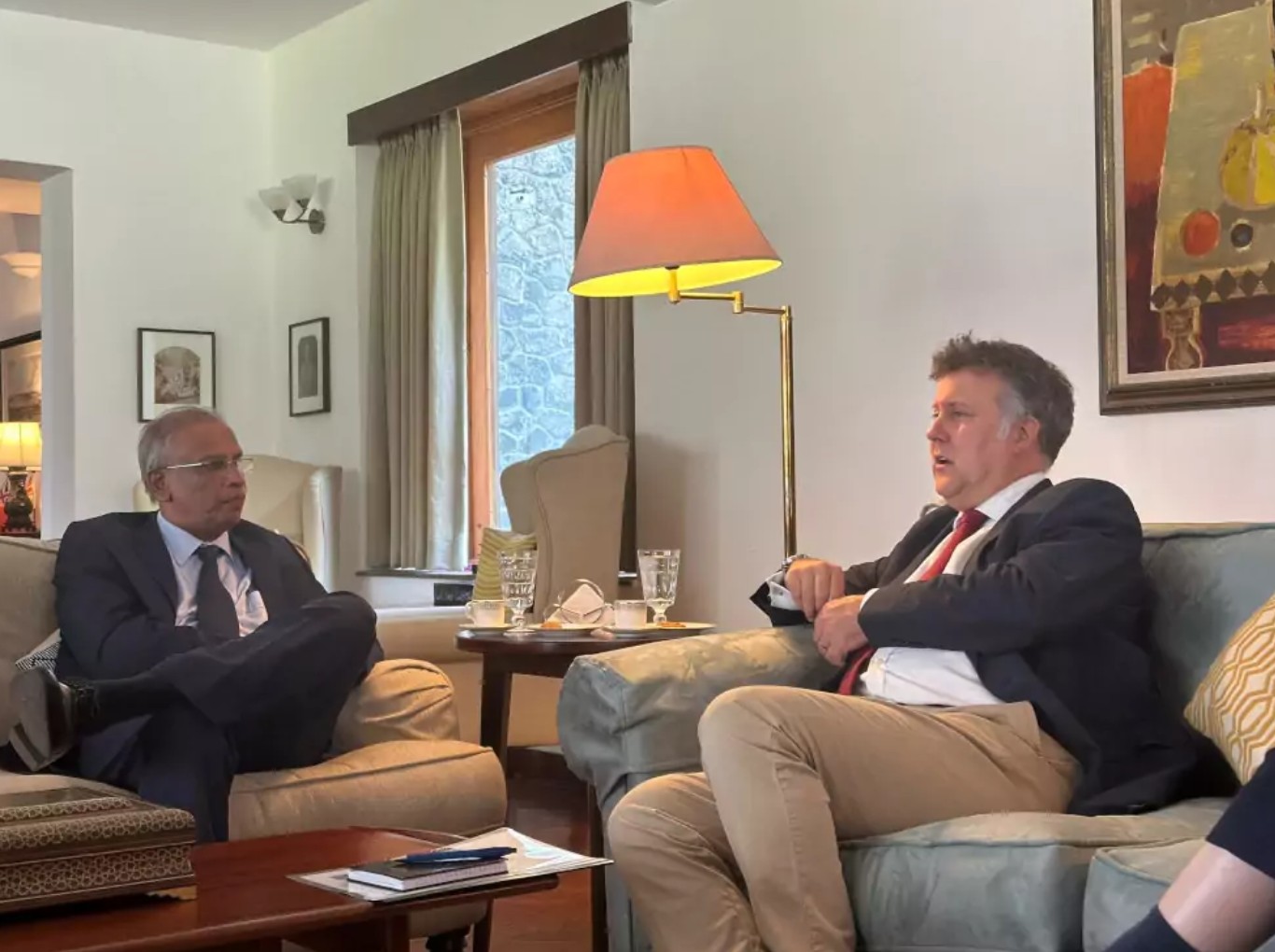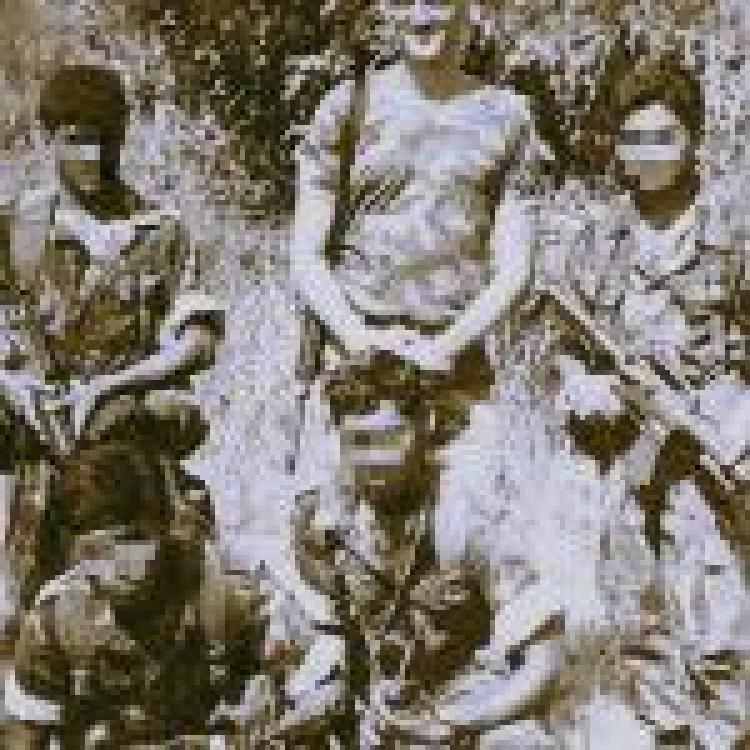
Photograph: Yardstick Films
Britain's Foreign Office successfully stopped a retired mercenary being compelled to give evidence at a freedom of information tribunal in London.
Government lawyers managed to block a witness application made by Declassified to summon Major David Walker, a former SAS officer who co-founded Keenie Meenie Services (KMS), a mercenary company active in the 1980s.
The mercenary firm is currently the subject of a full war crimes investigation by the Metropolitan Police over reports that it assisted the Sri Lankan military in committing crimes against Tamils during the 1980s. The firm also helped set up Sri Lanka’s Special Task Force (STF), a paramilitary police unit that is accused of committing mass atrocities over the course of the armed conflict and is increasingly involved in harassing and surveilling the civilian population across the North-East since the end of the conflict.
Several Foreign Office files about the company’s time in Sri Lanka remain censored, leading to an information tribunal hearing on 31 March.
Declassified had asked the court to summon Walker – the last surviving senior member of KMS – to face questions about whether Thatcher’s government gave him assurances that files from the mid-eighties would remain sealed beyond the standard 30 years.
'privilege against self-incrimination'
A government solicitor acknowledged “the Tribunal has the jurisdiction to make an order that any person (including someone not a party to the proceedings) be summonsed to give oral evidence at a hearing” and claimed the Foreign Office had “a formally neutral stance on the application”.
However, the Foreign Office said it was “appropriate … [it] assists the Tribunal by identifying some points of concern, including ones which Mr Walker might make.”
Referring to the Met police probe, they said: “should Mr Walker be connected to that investigation, it may (the FCDO [Foreign Office] simply speculates) mean that he would be entitled to respond to some of the lines of questioning put to him with reliance on the privilege against self-incrimination.”
Tribunal chairman Judge Neville agreed to the Foreign Office’s objections, but felt that their “neutrality is further difficult to reconcile with the opposition in its submissions.”
Even without Walker in the courtroom, Foreign Office barrister Stephen Kosmin mounted a spirited defence of his right to privacy.
Kosmin also told the judge “this is not a war crimes tribunal” and “nor should it exercise a moral judgement as to events during the Sri Lankan civil war”.
He claimed: “The Tribunal is not in a position to determine whether war crimes were committed in Sri Lanka and, if so, by whom.”
Turning to evidence from this journalist that at least 300 Tamil civilians disappeared at the hands of a KMS-backed police unit, Kosmin said it was “irrelevant to the Tribunal’s determination of these appeals.”
Kosmin’s stance seemed to contradict the UK government’s official position, with foreign secretary David Lammy placing sanctions on former Sri Lankan military commanders just days before the hearing began.
Lammy said:
“The UK government is committed to human rights in Sri Lanka, including seeking accountability for human rights violations and abuses which took place during the civil war, and which continue to have an impact on communities today.”
He added: “I made a commitment during the election campaign to ensure those responsible are not allowed impunity.” Yet in court, the Foreign Office downplayed the importance of the issue to Tamil voters in Britain, thousands of who fled Sri Lanka as refugees during the conflict.

Ben Mellor visited Sri Lanka days before the hearing to meet a government minister. ( FCDO/ Handout)
Ben Mellor, a diplomat responsible for the Indian Ocean region, said it was only a “vocal minority within the Tamil community” that was concerned about accountability for war crimes.
Mellor said it was “very reductionist” and “quite problematic to refer to any diaspora group as a singular block”, claiming that second generation migrants may care less about the conflict’s legacy than their parents.
When told that 11 Tamil community groups had written to the Foreign Office expressing concerns about KMS, he said it was a “very vocal group of people expressing those views who the UK government has continually engaged with over the years to ensure those concerns are addressed.”
At no point did the Foreign Office give examples of Tamil groups who were opposed to further transparency. Instead Mellor said disclosure would jeopardise the UK’s garment trade with Sri Lanka.
'There are serious questions to be asked when efforts to examine historic allegations'
Labour MP Uma Kumaran told Declassified:
“There are serious questions to be asked when efforts to examine historic allegations – including cases involving potential human rights violations on a serious foreign policy matter – are met with resistance from the Foreign Office.”
The MP, whose parents fled Sri Lanka’s civil war in the 1980s, said: “To add further insult, dismissing calls for justice from the British Tamil diaspora as the voice of a ‘vocal minority’ ignores the lived trauma of a community that has relentlessly sought truth and accountability for decades.”
Kumaran sits on parliament’s foreign affairs committee and represents a constituency in East London, an area home to many Tamil refugees.
She commented:
“If this government is serious about being a global leader on human rights, it must show that commitment starts here at home. I will continue to use my voice to seek answers.”
A written judgment on whether more should be declassified is expected at a later date.
Read more at Declassified





